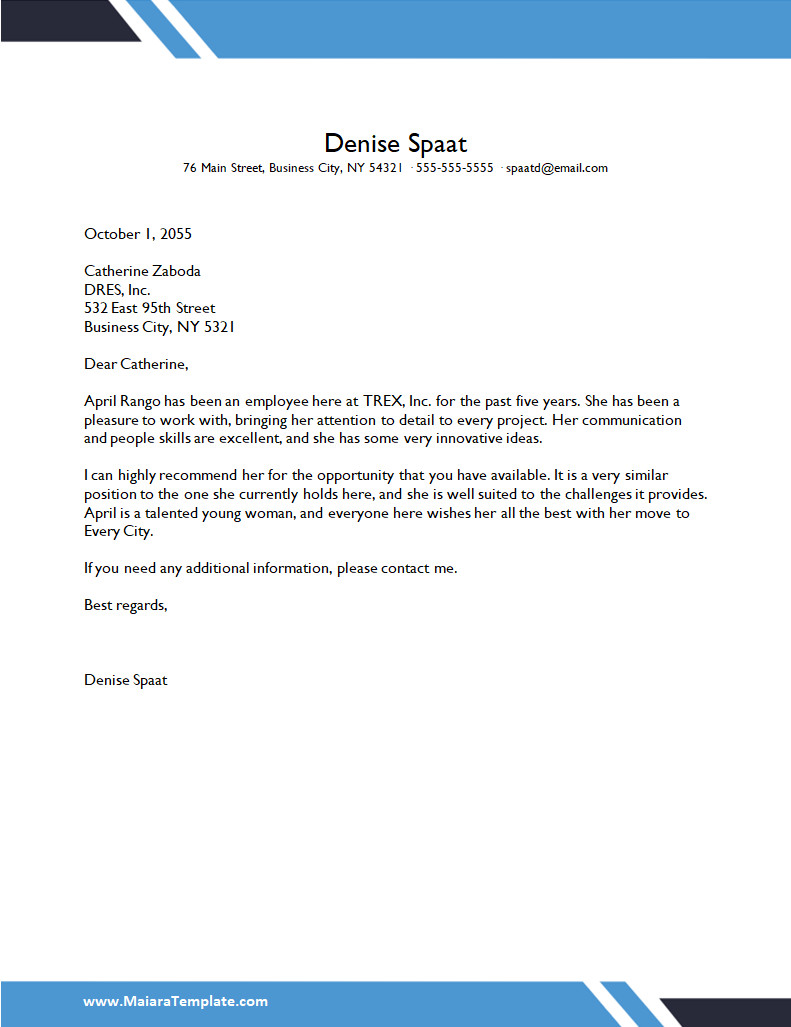When applying for a new job or opportunity, having a strong professional reference letter can make a significant difference in your application.

A professional reference letter is a document written by a former employer, colleague, or supervisor to provide a potential employer with a third-party endorsement of a candidate’s skills, abilities, work ethic, and character. It serves as a testimonial that supports an application by highlighting the individual’s professional strengths and suitability for a new role or opportunity, helping to confirm details and build a case for hiring.
What is a Professional Reference Letter?
A professional reference letter is a formal document that speaks to an individual’s qualifications, character, and work ethic. It is typically written by someone who has worked closely with the candidate and can attest to their skills and abilities.
The letter should provide specific examples of the candidate’s accomplishments and strengths, showcasing why they are a good fit for the position they are applying for.
Importance of Professional Reference Letters
Professional reference letters play a crucial role in the job application process. They offer employers insights into a candidate’s professional background, work ethic, and character that may not be evident from a resume or interview alone. These letters serve as endorsements from individuals who have firsthand knowledge of the candidate’s abilities, adding credibility to their qualifications and suitability for the job.
Employers rely on professional reference letters to verify the information provided by candidates and to gain a deeper understanding of their professional capabilities. A well-written reference letter can provide context to the candidate’s work experience, highlight specific skills and achievements, and offer a glimpse into their personality and work ethic. This additional perspective can help employers make more informed hiring decisions.
For candidates, professional reference letters offer an opportunity to showcase their strengths and qualifications in a more personalized and detailed manner. These letters can reinforce the candidate’s credibility, demonstrate their professional accomplishments, and differentiate them from other applicants. A strong reference letter can enhance a candidate’s overall application and increase their chances of securing the desired position.
Components of a Professional Reference Letter
When writing a professional reference letter, there are several key components that should be included to ensure its effectiveness. These components help provide a comprehensive overview of the candidate’s qualifications, character, and suitability for the position:
- Introduction: Begin the letter with a brief introduction of yourself and your relationship to the candidate. Include how long you have known the candidate and in what capacity.
- Description of the Position: Provide details about the position the candidate is applying for and why they are a strong candidate for the role.
- Skills and Qualifications: Highlight the candidate’s key skills, qualifications, and experiences that make them well-suited for the job.
- Work Ethic and Character: Discuss the candidate’s work ethic, character traits, and any personal qualities that set them apart.
- Specific Examples: Include specific examples of the candidate’s accomplishments, projects, or contributions that demonstrate their capabilities.
- Personal Recommendation: Offer a personal recommendation endorsing the candidate for the position and explaining why you believe they are an excellent fit.
- Contact Information: Provide your contact information in case the employer wishes to follow up or request further details.
Writing Style and Tone
When crafting a professional reference letter, it is important to maintain a professional writing style and tone throughout the document. The letter should be clear, concise, and focused on highlighting the candidate’s qualifications and strengths. Use formal language and avoid overly casual or informal expressions that may detract from the letter’s credibility.
Choose your words carefully to convey a positive and supportive message about the candidate. Avoid cliches or generic statements and instead, provide specific examples and details that illustrate the candidate’s abilities and accomplishments. Tailor the language and tone of the letter to reflect the nature of the position and the expectations of the employer.
While it is essential to present the candidate in a positive light, it is equally important to be honest and authentic in your assessment. Avoid exaggerating or embellishing the candidate’s qualifications and capabilities. Focus on providing an accurate and balanced portrayal that showcases the candidate’s strengths while acknowledging any areas for development.
Requesting a Professional Reference Letter
When requesting a professional reference letter from a former employer or colleague, it is essential to approach the process with professionalism and courtesy. Consider the following tips to ensure a successful request:
- Choose Your References Wisely: Select individuals who are familiar with your work and can speak to your skills and abilities.
- Ask in Advance: Give your potential reference ample time to write the letter and provide them with any necessary details or information.
- Provide Context: Remind your reference of your past work together, specific projects you worked on, and any achievements that they can highlight in the letter.
- Offer Assistance: Offer to provide your resume, a job description, or any other materials that may help your reference write a strong letter on your behalf.
- Follow Up with Gratitude: After receiving the letter, follow up with a thank-you note expressing your appreciation for their support and assistance.
By following these tips and guidelines, you can ensure that your professional reference letter is well-written, impactful, and tailored to showcase your qualifications and strengths effectively. Remember that a strong reference letter can make a significant difference in your job application and help you stand out as a top candidate for the position.
Professional Reference Letter Template – WORD
- Home Purchase Agreement Template - January 28, 2026
- Home Improvement Contract Template - January 27, 2026
- Free Printable Home Budget Template - January 26, 2026